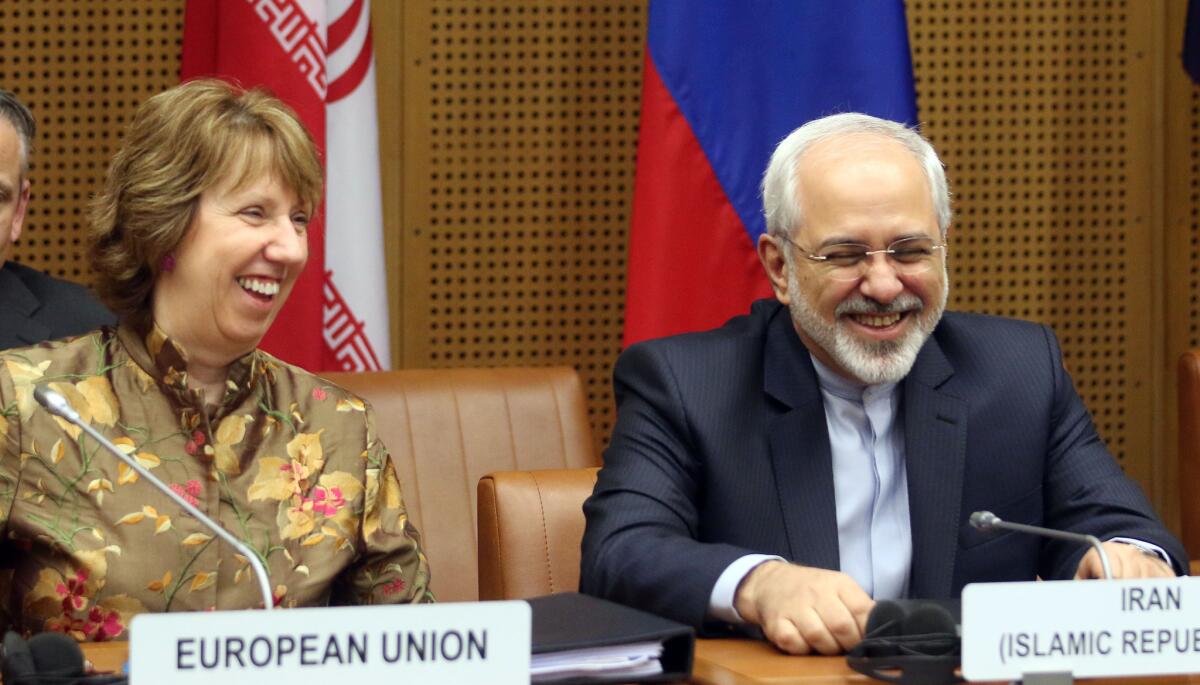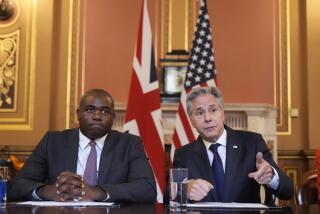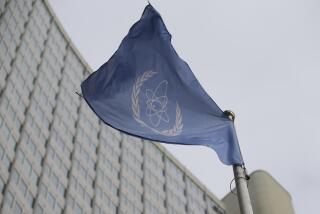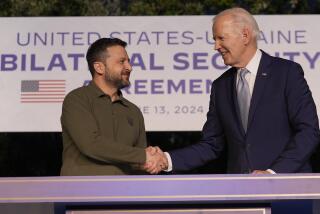Iran, major powers begin two-month sprint toward nuclear deal

Iran and six world powers Wednesday formally began a two-month diplomatic sprint to complete a deal aimed at preventing Tehran from developing the ability to build nuclear weapons.
Top diplomats from the United States, Britain, China, France, Germany and Russia met with the Iranians, and among themselves, in various combinations all day and into the evening.
While both sides are eager to make a deal, their views continue to be separated by a wide gulf. The six powers arrived in Vienna without a detailed script for how they would resolve the differences.
The group is moving “to a new phase in the negotiations in which we will begin pulling together” ingredients of a deal, said Michael Mann, a spokesman for European Union foreign policy chief Catherine Ashton.
In past sessions, negotiators have sought to lay out all the issues. For the next nine weeks, they hope to write the text of the deal, which they call the “comprehensive joint plan of action.”
Abbas Araqchi, Iran’s deputy foreign minister, told Iranian journalists Tuesday evening that the diplomats had cleared their calendars from July 1 to July 20 to enable them to complete the deal.
The agreement is intended to give Iran relief from crushing international economic sanctions in return for its commitment to safeguards intended to prevent it from acquiring nuclear weapons capability. The two sides must resolve half a dozen major issues that divide them, and it is expected that the bargaining will become intense as the deadline approaches.
A senior U.S. official Tuesday cautioned against excessive optimism given the wide differences that remain.
Even so, various diplomats say the group is edging toward compromises on some key issues, including the monitoring of Iran’s nuclear infrastructure; the treatment of the disputed Arak heavy water research reactor; the deeply buried Fordow uranium enrichment site; and the expected duration of the deal.
Though the U.S. official sought to lower expectations, Araqchi told journalists that a deal is “within our reach” provided negotiators can exert the necessary political will.
Araqchi insisted that Iran wouldn’t negotiate over its missile program, though U.S. officials believe it must be a subject of talks because the United Nations Security Council has raised it as an issue.
And he said U.S. officials have to accept the idea that Iran will continue to have a real nuclear infrastructure.
“Iran’s peaceful nuclear program is real and with specific dimensions to meet the tangible needs of the country,” he said, according to the Iran Student News Agency. “If some have this illusion that they can reduce it to a symbolic plan, they are making a mistake.”
Speaking to journalists in Washington on Tuesday, French Foreign Minister Laurent Fabius suggested that Paris may again push for tough terms in the deal if it believes that the group is being too lenient. Fabius spoke out publicly last fall during negotiations when he felt the six nations needed a firmer stance.
“Up to now we have succeeded in being unified, which is very important,” he said. But, he added, “you can trust France to be firm … as we were during the first phase of the talks.”
Fabius hinted that he would give up on the talks if it appeared impossible to bridge the differences.
As the Iran talks began, Defense Secretary Chuck Hagel was visiting the Persian Gulf region to reassure leaders that the U.S. remains strongly committed to their security, despite the negotiations as well as the American desire to scale back involvement in foreign wars.
Hagel promised that the Vienna talks would not “trade away regional security for concessions on Iran’s nuclear program.”
In Iran, the beginning of the final phase of talks received limited attention in the media.
But some hard-line analysts and journalists voiced their fears that a deal could hurt Iran’s interests, while pro-reform publications expressed hope that the country might be headed for a new path.
Abedin Noureddini, an analyst from the hard-line camp, warned in the Vatan e Emrouz daily newspaper that while President Hassan Rouhani is accusing opponents of a deal of trying to protect their profiteering from the current economic system, “Iran is retreating from resistance against the enemy in nuclear technology and is practically stopping” nuclear research and development.
Ali Reza Zakani, a hard-line lawmaker, warned that Iran’s negotiators might soon be bullied by their Western counterparts.
The Western “murderer team” might soon “return to its bullying trait,” he said in a TV debate, and warned that a bad deal could jeopardize the entire Iranian system.
“The nuclear dossier is highly important and tied with the destiny of the system,” Zakani said.
But the Shargh newspaper, a voice of the reformists, said the Vienna meetings were opening “a new chapter” in the book of Iran’s history.
Times staff writer Richter reported from Vienna and special correspondent Mostaghim from Tehran. Staff writer Lalita Clozel in Washington also contributed to this report.
More to Read
Sign up for Essential California
The most important California stories and recommendations in your inbox every morning.
You may occasionally receive promotional content from the Los Angeles Times.











